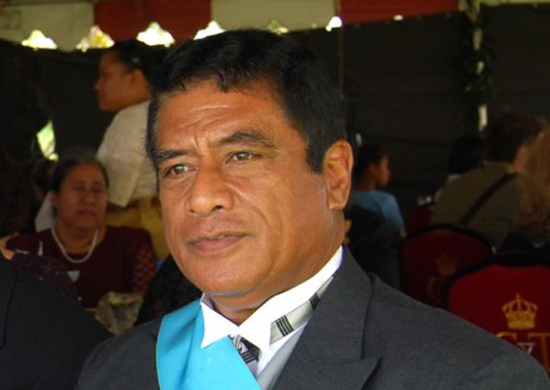
OPINION: Nobles' control of Tonga's first democratic government was not what was meant to happen. The revised constitution provided a clear expectation that commoners would hold sway in the House of Representatives.
That this has not occurred says much about Tongan society, not least the lingering impact of a strong strand of stratification. It would be wrong, however, to see this outcome as anything more than a hiccup in the democratic process. The cork is out of the bottle and there is no going back.
November's elections resulted in commoners' representatives outnumbering hereditary nobles for the first time. Under the new constitution, they elected 17 members, 12 of whom were candidates of 'Akilisa Pohiva's Democratic Party and five of whom were independents.
In sum, the 12 Democratic Party candidates won 71 per cent of the votes, compared with 29 percent for other candidates. The nobles, for their part, selected nine representatives.
The election result left little doubt about the wishes of the Tongan people. Pohiva's party failed, however, to win a clear majority. Nor could he garner the support of the five independent MPs in the ballot to decide the country's first Prime Minister elected by Parliament, rather than appointed by the King.
Contrary to the wishes of most Tongans, the independents all voted for Lord Tu'ivakano, a former Speaker of Parliament, who was, thus, given the right to name a Cabinet.
Not unreasonably, Pohiva demanded six seats for his party in the 13-strong Cabinet. He was offered just two. The Cabinet will, effectively, be controlled by the nobles, even if this is camouflaged to a degree by the presence of independent MPs.
Clearly, this is a setback for the pro-democracy camp. In many ways, the new government is little different from its predecessor.
Arguably, it is even more biased towards the nobles, given that Lord Tu'ivakano replaces Feleti Seveli, who, at King George Tupou V's behest, had been the first commoner to serve as Prime Minister.
There is an obvious risk in the nobles' self-serving approach. In 2006, violence sparked by a pro-democracy rally resulted in the destruction of much of downtown Nuku'alofa.
Similar frustration exists now, a situation exacerbated by the country's woeful economy. However, a repeat of the rioting is unlikely. Tonga's gradual progress towards democracy - a path that, obviously, still has some way to go - has taken much of the heat out of the issue.
So, too, has the King, who was astute enough to recognise the monarchy must adopt a far more limited role. Having sanctioned the democracy process, he is unlikely to have been impressed that some of its integrity has been undermined by a noble becoming the Prime Minister and the subsequent Cabinet selection.
But more credit still must be reserved for the restraint shown by Pohiva. His landslide election win had him poised for outright triumph after 30 years of campaigning. Yet even then his impulse was to call for the nobles to work with the people's representatives in a government of unity.
And if the failure to attract the support of the five independent MPs in his quest for the Prime Minister's job was a shattering blow, there has been acceptance, rather than extravagant recrimination.
Arguably, Pohiva has been the victim of a submissiveness to nobility that lingers in Tonga. If the election outcome suggests only remnants of this survive, the country's home-spun brand of democracy has been enough to thwart the popular will on this occasion.
Tonga must await a genuinely representative Parliament. Democracy, however, is there to stay. - New Zealand Herald editorial/Pacific Media Watch
NZ Herald editorial: Democracy's day one step closer in Tonga



